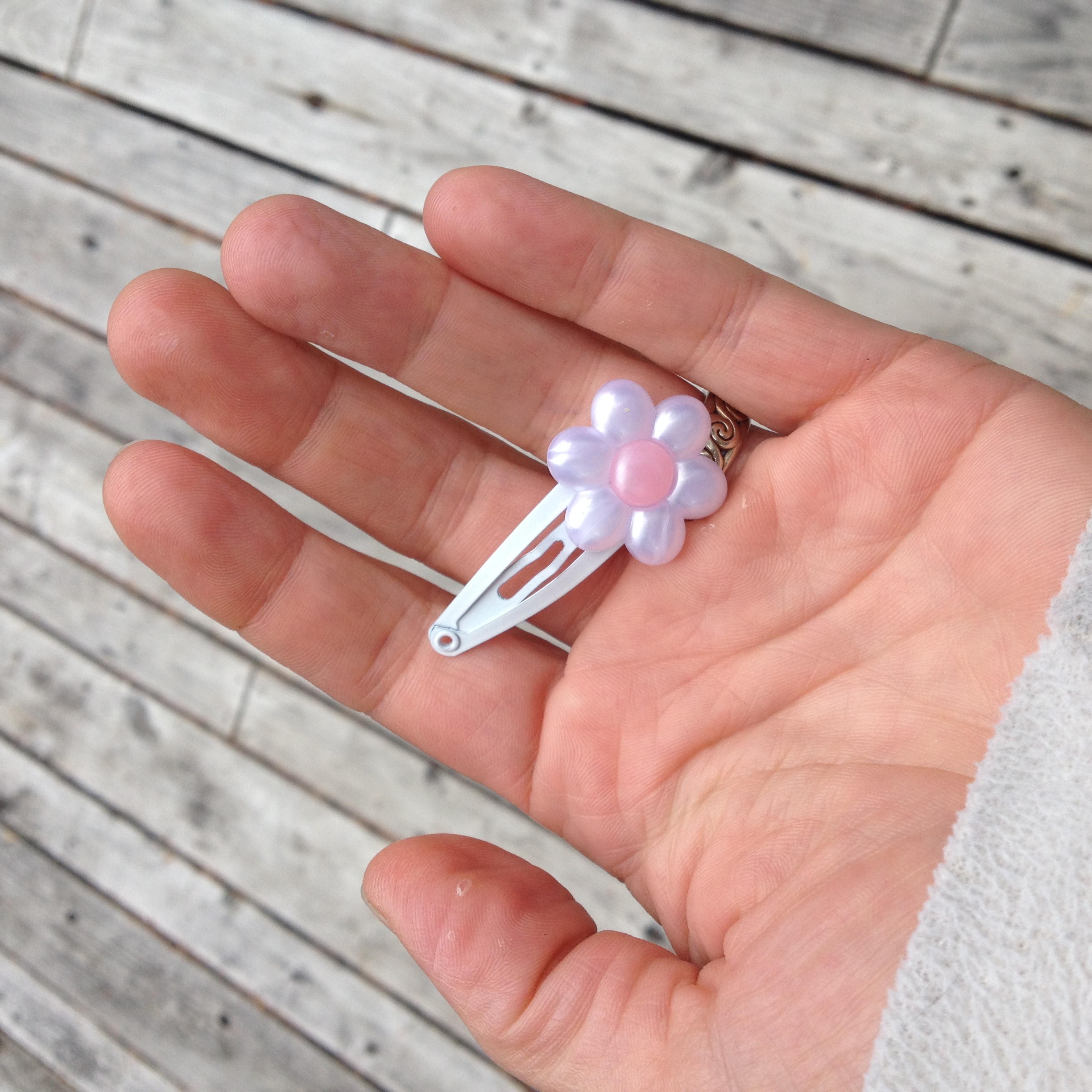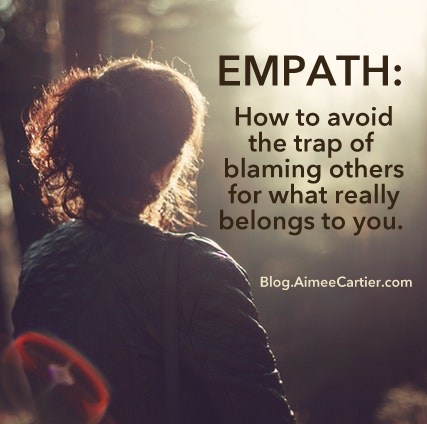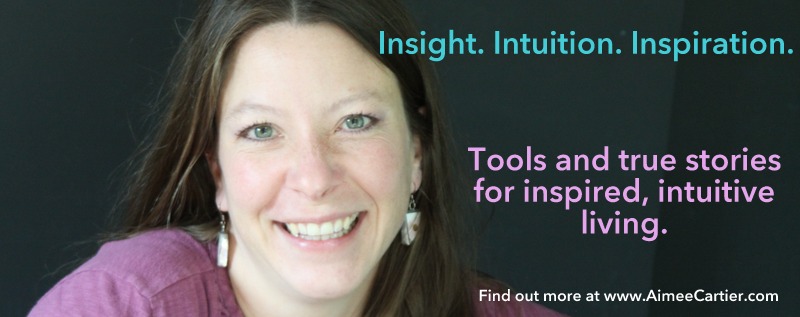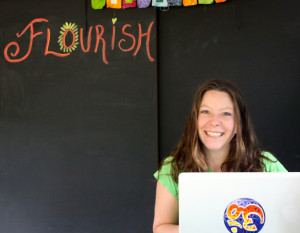Empaths: How to avoid the trap of blaming others for what really belongs to you.
I once had a student ask me, “I get really agitated in meetings when I hear people say sexist things—is that a product of being empathic?”
Empaths pick up the subtle or intense vibes (especially emotional) that are happening around them. What can be just a normal emotional volume or even a barely audible one for the non-empathic person can be VERY LOUD for the empath. So this question was not an illegitimate. She was truly wondering if she might have been picking up the vibe in the room.

I replied, “Does hearing people say sexist things bother or offend you?”
“Yes,” she said.
“Then,” I said, “what you are feeling is your own.”
My question and her response showed that the feelings of others in the room were neither the primary cause of her feeling nor the avenue that she could use to shift it.
For an empath, avoiding the trap of blaming others for what really belongs to you requires what I call brutal honesty with self. You want to know what belongs to you and what belongs to other, in fact that’s an essential piece of learning to manage your own empathic ability and live with it happily. You especially want to know because blaming someone else for something that belongs to you takes away your own power.
Let me show you by example. I’ll give you two different examples to demonstrate the difference.
Once my daughter, who was three at the time, was standing in our kitchen when she became extremely upset about a barrette that was in her hair. She was freaking out about it quite loudly and as I walked toward her to first understand her dilemma and then help it, I found myself getting really agitated, frustrated, and stressed (in my body) about what was happening. It took me a second or two to realize that this might not have anything to do with me.
So I asked myself internally, “Am I upset about this?” I had to assess. Maybe I was. And the answer was, “No. I’m not upset about this barrette.”

As soon as I identified that the emotion belonged to her and not me I was able to let it go. I was able to reach down from my adult-who-is-not-agitated-in-the-slightest-about-this-barrette stance and calmly give her the help that she needed. I was also able to allow her to be as frustrated as she wished to be about her barrette. It didn’t bother me anymore because I was not also simultaneously trying to process the emotion in my own body (to no avail).
Being an empathic mother gives you ALL KINDS of opportunities to practice and hone your empathic abilities!
Along the same lines I have sometimes asked the question about something happening with my children and the response has been “Yes. Yes I’m upset about this! I am trying to cook dinner and the fact that this is interrupting me IS really irritating me.”
It may come as a surprise, but when I get the, “Yes, this is me” answer (even for an uncomfortable emotion) there is also a relief to it.
It gives me power again. I am no longer a victim of an intense emotion that is defining my actions. I am now aware that I have a choice. I also know what is bothering me.
It is very hard to fix something if you do not understand it. Suddenly it’s not just this nebulous thing aggravating me; it’s not even about my children, it’s about me. I have options. I can choose to acknowledge the hardship that I perceive I am facing—which sometimes is all the relief that is needed. Or I can choose to recognize, as sometimes situations require, “This is really not as big of a deal as I’m making it out to be.” Or, “Yes it is a big deal—and still, I’m in charge of how I act.” I can choose to act with patience and like an adult about it— or I can choose to throw my own tantrum like a three-year-old. Either way, I am now choosing, instead of just being driven by my intense emotion. 🙂
Likewise my student in her business meeting– once she realizes the emotion is hers– gets the same choice. She has more of an opportunity to calm herself. Or perhaps she just gets to understand about herself, “I don’t like comments like that – I feel them acutely under my skin.” She now has the opportunity to ask herself if she feels she needs to do or say something about what is happening– and she gets to choose what that is. She might discover that she feels a strong need to address these types of injustices. Or not. The point is, she is not blaming another for something that belongs to her– and now she has some choices that she didn’t before when she was just flustered, heated, and overwhelmed by what she had just heard. When you know the emotion belongs to you, you are in charge of how you act about it.
I have not yet known an empath who is bothered by picking up an excess of joy or happiness. 🙂 So when we are talking about discovering if the emotion actually does belong to you, we are pretty much always speaking of the uncomfortable emotions: anger, sadness, frustration, etc.
Discovering the answer to that question requires total self-honesty. You need to ask yourself something akin to the question I asked my student, “Does this situation actually bother ME?” Or some such question that gets to the heart of the emotion you are experiencing.
If the answer is yes, then own that. Don’t try to put it off on your empathic ability. See what, if anything, you want to do about it. Feel your emotion. Settle in to YOUR moment of choice. 🙂
Even as an empath, this is where your true power is.
Love,
Aimée
Aimée Cartier is a psychic, author, and the founder of Empath Intuition University. She teaches empaths how to manage their own abilities so that instead of being at the whim of every emotion they come in contact with, they are in charge of their own perceptions. By the end of her Empath Intuition University program they are able to not only create natural boundaries for themselves but easily discern the difference between something they are picking up outside of themselves and what is coming from within. More about her psychic readings, or work with empaths can be found at www.AimeeCartier.com.

SaveSave




 I like this!
I like this!